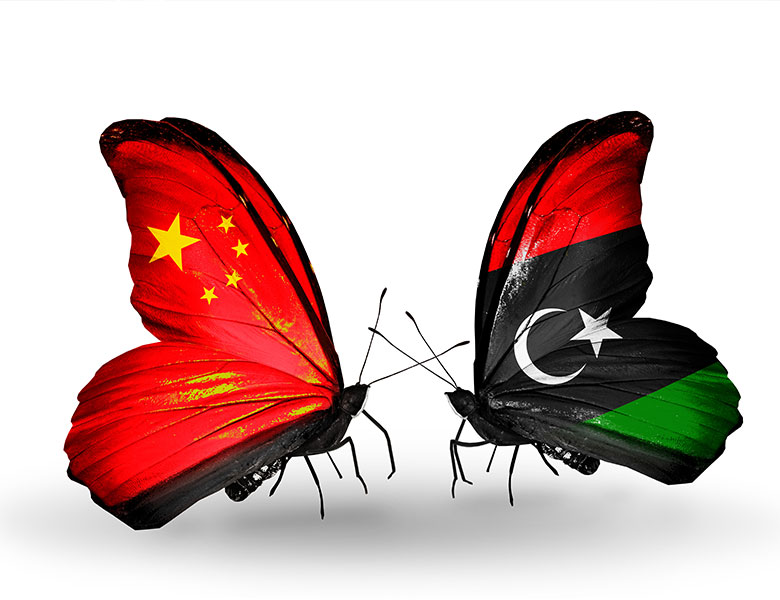What we know
The PLA Navy has just dispatched Xuzhou, a Type 054 Jiangkai-II class missile frigate, from the ongoing seventh PLAN anti-piracy task force deployment off Somalia to steam to Libyan coast to provide support and protection for the ongoing evacuation mission there. The escort mission has been approved by the Central Military Commission, according to Xinhua, and at least 6,300 of the roughly 30,000 PRC citizens in Libya have been evacuated. The news agency adds that the Chinese evacuation is also utilizing chartered aircraft, overland routes to Egypt and Tunisia, ships from China’s major state shipping firms, and Greek merchant vessels in the region, which are said to be closely coordinating their operations with the Chinese government and plan to evacuate up to 15,000 Chinese from Libya.
Beijing’s speedy response shows nimbleness in handling a situation where descent into chaos has directly impacted Chinese citizens’ security. As of 23 February 2011, the Ministry of Commerce said at least 27 Chinese-run construction sites had been attacked by armed individuals and that there were numerous injuries. Commissioned in 2008, Xuzhou is a 4,000-ton frigate with a Vertical Launch System capable of launching HHQ-16 surface-to-air missiles to protect against air threats and a hangar with one Z-9 helicopter. It is a solid medium-sized warship, but cannot carry many people and thus would not be useful as a rescue vessel. Xuzhou’s escort mission is likely designed to serve several related immediate objectives, including avoiding a USS Cole-style terrorism or irregular attack scenario that could harm evacuees, and sending a clear message to various elements in Libya not to harm Chinese civilians or disrupt their evacuation. This latest initiative is part of a larger ongoing increase in Chinese power, presence, and influence around the world, and should come as no surprise. China has global interests, cannot free ride forever, and requires a presence in critical areas and situations in order to have a voice.
Tactical and strategic implications
Xuzhou’s mission marks an important milestone because to the best of our knowledge, this is the first ever dispatch of a PLA military platform specifically assigned to help protect a non-combatant evacuation operation (NEO) to help PRC citizens trapped in an active conflict zone. Chinese policymakers now have a precedent for future military operations in areas where the lives and property of expatriate PRC citizens come under threat. We expect that the Chinese people’s popular support for the mission will be high.
This action fits with the 2008 decision to launch the anti-piracy mission in the Gulf of Aden. On the tactical level, it reflects the PLAN’s growing confidence and capacity in conducting long-range operations. The mission is also a booster shot for the PLAN’s public image in China and will likely help it secure more funding in coming years.
Successfully protecting Chinese merchant ships from pirates and evacuating Chinese citizens from violent areas are great cards for PLA senior naval officers and civilian supporters of a strong navy to play during internal procurement debates. Having the PLAN consistently answer the call when China’s overseas comrades and commercial interests needs protection clearly explains the force’s value and will smooth the way for advocates of the carrier program, as well as those who seek a more robust long-range naval capability in general.
Finally, as China’s military modernizes its platforms and bolsters its long-range operational capabilities and experience, it can draw on the precedent set in this mission if protection missions or interventions become necessary in the future. On the international level, safeguarding the evacuation of PRC citizens provides a positive and peaceful rationale for logistically-useful operations that also provide advantageous military training opportunities. We think such contingencies are very likely as China’s expatriate workers continue seeking their fortunes in potentially volatile regions such as Africa. Xuzhou’s deployment reflects the reality that Beijing is now more willing to employ military power when PRC citizens overseas are threatened. By demonstrating concrete will and operational capability, a more muscular Chinese foreign military posture such as that shown by Xuzhou’s mission may actually be a positive lever for cooperation against non-traditional security threats. Therefore, we think once the dust settles, Xuzhou’s dispatch should be discussed with Chinese diplomatic and security officials to explore ways to better coordinate bilateral and multilateral military cooperation.
Further reading on the topics of China’s ability to protect citizens overseas and the crisis in Libya
For more details on Beijing’s dispatching of the frigate Xuzhou to escort ships transporting Chinese citizens from Libya, see Gabe Collins and Andrew Erickson, “China Dispatches Warship to Protect Libya Evacuation Mission: Marks the PRC’s first use of frontline military assets to protect an evacuation mission,” China SignPost™ (洞察中国), No. 25 (24 February 2011).
For analysis of Beijing’s interests in Libya and the surrounding region, see Gabe Collins and Andrew Erickson, “Libya Looming: Key strategic implications for China of unrest in the Arab World and Iran,” China SignPost™ (洞察中国), No. 24 (22 February 2011).
For early projections regarding Chinese efforts to protect citizens overseas, see Andrew Erickson and Gabe Collins, “Looking After China’s Own: Pressure to Protect PRC Citizens Working Overseas Likely to Rise,” China Signpost 洞察中国™, No. 2 (17 August 2010).


